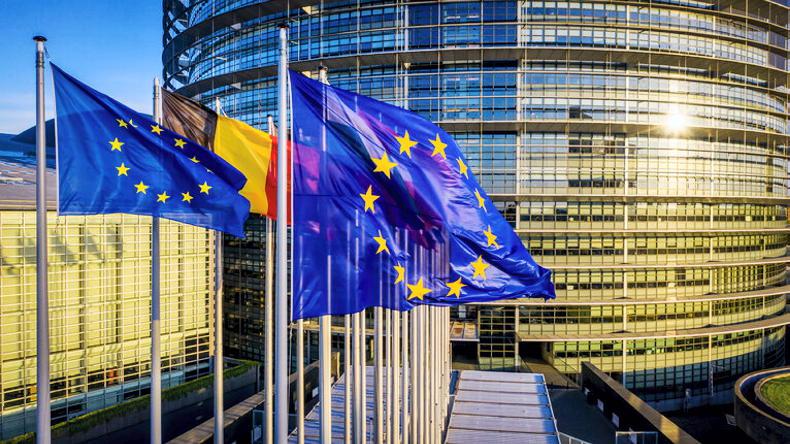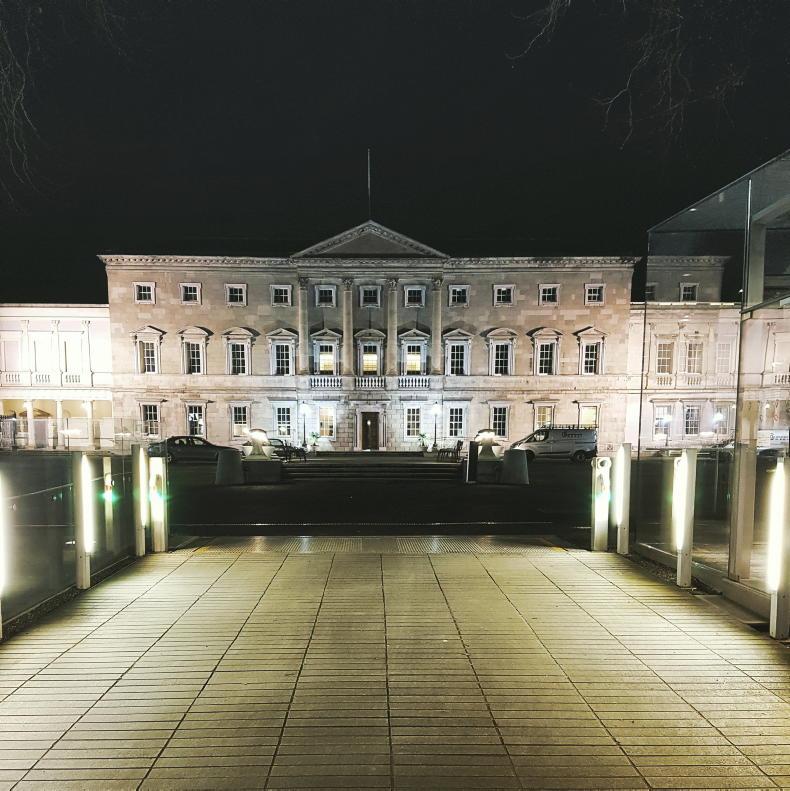While farmgate prices improved in the closing weeks of 2023, it will not go down as a memorable one for farmers, as weak markets for much of the year - along with high input costs - caused damage to farmers' bottom line.
The start of a new year is the time for reflection and embrace of a healthier lifestyle to counteract the excesses of Christmas.
For farmers, it will, as always, be a case of looking to markets, hoping for the best but fearing the worst.
Trump versus Biden II?
As Irish farmgate prices are shaped by performance in export markets, we can expect uncertainty in 2024 because of elections in many of our major export markets.
In a global context, the US presidential election in November will attract top billing if the candidates are as expected - Biden versus Trump again.
It can be billed as a rematch, with the challenger strongly fancied, but, if he regains power, the world faces a further four years of uncertainty at an already difficult time.
We can expect further pressure on US companies that use Ireland as their international base and, if things turn nasty, tariffs on dairy exports are a US weapon that has been used before.
Closer to home
Closer to home, there will be elections to the European Parliament in May and these will be an indicator of expected performance in an upcoming general election in Ireland, expected in the autumn of 2024, although it could be delayed to the start of 2025.
Elections to the European Parliament means a new parliament and the appointment of a new European Commission.

Elections to the European Parliament will be held in May this year.
That is a horse-trading process in which Ireland will have a new nominee, expected from the Fianna Fáil party, but no certainty as to who will get the nomination for this much sought-after job.
Irish farmers would welcome someone to follow the footsteps of Phil Hogan into the agriculture brief in the last but one Commission, but that will remain to be decided in the autumn of 2024.
Big change possible in next Dáil
Ireland will be in election mode from the elections to the European Parliament, even if the general election is delayed into the start of 2025.

Dáil elections are likely in the second half of this year or this time next year at the latest.
It will be touch and go if the outgoing coalition is returned and there is the real possibility of a Sinn Féin-led government for the first time. This will bring its own uncertainty for farmers, but they do have a broad rural constituency, as well as a strong urban vote, and in Matt Carty have several years of experience on the agriculture committee of the European Parliament.
He may not hold the agriculture brief in a Sinn Féin government, but he would be in it somewhere.
Also, they are likely to have a coalition partner or partners, but, in any case, the party has been working hard to assure business that they have nothing to fear from a Sinn Féin-led government and that should also apply to farmers and the agri-food industry.
As for the UK, it has been a case of political turmoil since Brexit and when things looked to be stabilising in the autumn, another political crisis emerged on how to handle immigration. Uncertainty in UK political circles will continue in 2024.
International conflict
Next month, the war in Ukraine will be two years old and, aside from the human cost, it also created major turbulence in energy and grain markets.
In the two years since, Europe has adapted to a world without Russian gas and has developed alternative supply lines.
Even in Ukraine itself, farming and grain production has continued, even if in more difficult circumstances than before.
As for the Middle East, while the pictures are horrific, the impact on oil markets has so far been negligible. War and conflict have terrible human consequences, yet commercial life adapts.
Of course, that would no longer apply if there was to be major escalation in either case.
With so much political activity in the year ahead, major policy changes are less likely. It will be the job of the next European Commission to draft the next CAP and trade deals are unlikely to be signed off during election campaigns.
Farmers will hope for better weather, lower input costs and higher selling prices in 2024. None of these can be guaranteed and won't even be promised by the most optimistic canvassers as they do the lobbying of farmers in search of their vote for the European elections in the first instance and the Dáil later in the year or this time next year at the latest.
While farmgate prices improved in the closing weeks of 2023, it will not go down as a memorable one for farmers, as weak markets for much of the year - along with high input costs - caused damage to farmers' bottom line.
The start of a new year is the time for reflection and embrace of a healthier lifestyle to counteract the excesses of Christmas.
For farmers, it will, as always, be a case of looking to markets, hoping for the best but fearing the worst.
Trump versus Biden II?
As Irish farmgate prices are shaped by performance in export markets, we can expect uncertainty in 2024 because of elections in many of our major export markets.
In a global context, the US presidential election in November will attract top billing if the candidates are as expected - Biden versus Trump again.
It can be billed as a rematch, with the challenger strongly fancied, but, if he regains power, the world faces a further four years of uncertainty at an already difficult time.
We can expect further pressure on US companies that use Ireland as their international base and, if things turn nasty, tariffs on dairy exports are a US weapon that has been used before.
Closer to home
Closer to home, there will be elections to the European Parliament in May and these will be an indicator of expected performance in an upcoming general election in Ireland, expected in the autumn of 2024, although it could be delayed to the start of 2025.
Elections to the European Parliament means a new parliament and the appointment of a new European Commission.

Elections to the European Parliament will be held in May this year.
That is a horse-trading process in which Ireland will have a new nominee, expected from the Fianna Fáil party, but no certainty as to who will get the nomination for this much sought-after job.
Irish farmers would welcome someone to follow the footsteps of Phil Hogan into the agriculture brief in the last but one Commission, but that will remain to be decided in the autumn of 2024.
Big change possible in next Dáil
Ireland will be in election mode from the elections to the European Parliament, even if the general election is delayed into the start of 2025.

Dáil elections are likely in the second half of this year or this time next year at the latest.
It will be touch and go if the outgoing coalition is returned and there is the real possibility of a Sinn Féin-led government for the first time. This will bring its own uncertainty for farmers, but they do have a broad rural constituency, as well as a strong urban vote, and in Matt Carty have several years of experience on the agriculture committee of the European Parliament.
He may not hold the agriculture brief in a Sinn Féin government, but he would be in it somewhere.
Also, they are likely to have a coalition partner or partners, but, in any case, the party has been working hard to assure business that they have nothing to fear from a Sinn Féin-led government and that should also apply to farmers and the agri-food industry.
As for the UK, it has been a case of political turmoil since Brexit and when things looked to be stabilising in the autumn, another political crisis emerged on how to handle immigration. Uncertainty in UK political circles will continue in 2024.
International conflict
Next month, the war in Ukraine will be two years old and, aside from the human cost, it also created major turbulence in energy and grain markets.
In the two years since, Europe has adapted to a world without Russian gas and has developed alternative supply lines.
Even in Ukraine itself, farming and grain production has continued, even if in more difficult circumstances than before.
As for the Middle East, while the pictures are horrific, the impact on oil markets has so far been negligible. War and conflict have terrible human consequences, yet commercial life adapts.
Of course, that would no longer apply if there was to be major escalation in either case.
With so much political activity in the year ahead, major policy changes are less likely. It will be the job of the next European Commission to draft the next CAP and trade deals are unlikely to be signed off during election campaigns.
Farmers will hope for better weather, lower input costs and higher selling prices in 2024. None of these can be guaranteed and won't even be promised by the most optimistic canvassers as they do the lobbying of farmers in search of their vote for the European elections in the first instance and the Dáil later in the year or this time next year at the latest.








 This is a subscriber-only article
This is a subscriber-only article










SHARING OPTIONS: